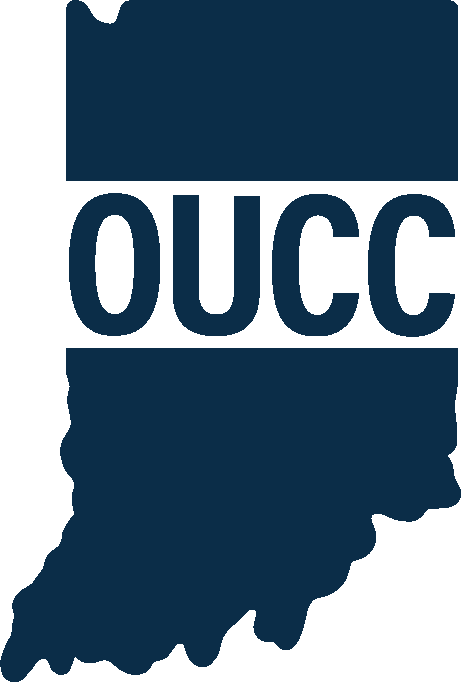All five of Indiana’s investor-owned electric utilities are offering energy efficiency programs under orders approved by the Indiana Utility Regulatory Commission (IURC).
In 2015, the Indiana General Assembly approved legislation (Senate Enrolled Act 412) requiring investor-owned electric utilities to seek IURC approval of new energy efficiency programs by the end of 2017. After 2017, the utilities will be required to seek approval of new plans at least once every three years. Indiana law allows utilities to recover the costs of these programs through rates (although certain industrial customers have the option to withdraw based on their electric usage).
Each utility has requested approval of plans in separate cases:
Information about specific energy efficiency programs is available on utility websites:
As the public’s representative in IURC cases, the Indiana Office of Utility Consumer Counselor (OUCC) carefully reviews each proposed plan regarding its compliance with state law and its impact on ratepayers.
Each utility is required to include the following in its plan:
- Specific energy efficiency goals,
- Programs to achieve the goals,
- Program costs and budgets, and
- Plans for evaluating, measuring, and verifying the plan’s performance by an independent, third-party entity.
The 2015 law:
- Requires energy efficiency goals to be:
- Reasonably achievable,
- Consistent with the utility’s integrated resource plan (a comprehensive, long-term plan for meeting future energy needs, completed by each electric utility every two years), and
- Designed to achieve an optimal balance of energy resources in an electric utility’s service territory.
- Allows utilities to recover or receive “reasonable financial incentives” and “reasonable lost revenues.”
- Specifically defines “lost revenues” and “program costs.” Program costs include the direct and indirect costs of the energy efficiency programs, evaluation costs regarding program results, and other incentives the IURC approves.
- Allows utilities to file each plan either as a standalone case or as part of a general rate case.
- Applies only to the five regulated investor-owned electric utilities in Indiana (Duke Energy, Indiana Michigan Power, Indianapolis Power & Light, NIPSCO, and Vectren). Municipal electric utilities and rural electric membership cooperatives (REMCs) are exempt.
The new law also requires the IURC to take 10 specific items* into account when reviewing the plans:
- Projected changes in customer consumption of electricity due to the plan.
- A cost and benefit analysis of the plan including the likelihood of achieving the plan’s energy efficiency goals.
- Whether the plan is consistent with the utility’s most recent integrated resource plan, including reports developed or commissioned by the IURC.
- The inclusion and reasonableness of procedures to evaluate, measure, and verify the results of the energy efficiency programs. Federal environmental regulations are to be taken into account.
- Any undue or unreasonable preference to any customer class resulting or potentially resulting from the implementation of the plan’s design or programs.
- Comments provided by the OUCC, consumers, and other stakeholders concerning the plan’s adequacy and reasonableness.
- The plan’s effect or potential effect on rates, both in the long and short term. This is to include the impact on electric rates and bills of customers that participate in energy efficiency programs compared to those of customers who do not.
- The lost revenues and financial incentives associated with the plan and how the utility may recover or receive them.
- The electricity supplier’s current integrated resource plan.
- Any other information the commission considers necessary.
* Specific legal language is available on the Indiana General Assembly’s website.
In reviewing the plans and preparing testimony for the IURC’s consideration, the OUCC has focused on a number of additional issues to ensure each plan complies with state law and includes adequate ratepayer protections. While this is not a complete list of all items the OUCC could consider, the agency has sought answers to a number of questions:
- Will each individual energy efficiency program within each plan be operated in a cost-effective manner?
- Will any rate increases due to lost margins and shareholder incentives be recovered in ways consistent with the law?
- Will each program perform in a meaningful way with measurable results?
- Is each utility committing to a culture of continuous improvements on energy efficiency performance?
- Has the utility developed and implemented performance metrics with appropriate monitoring and compliance mechanisms?
- Will oversight boards be maintained for each utility’s energy efficiency plan? (The OUCC participates on each board to help ensure that approved energy efficiency dollars are being spent wisely.)
- Is each utility using regularly scheduled market potential studies in setting its goals?
While each utility is allowed to set its own goals for the new energy efficiency programs, the OUCC will continue to consider whether there are consistent tools and/or best practices that all five utilities may use.
6/16
